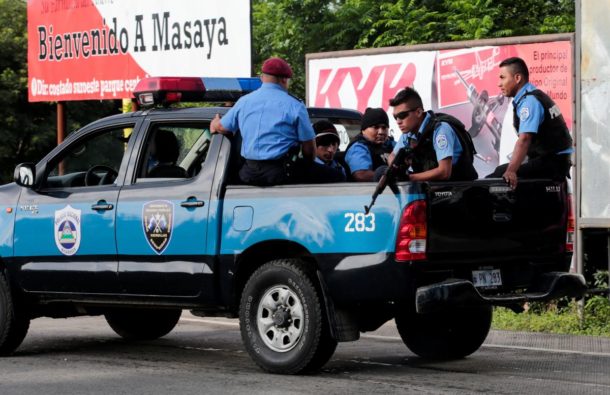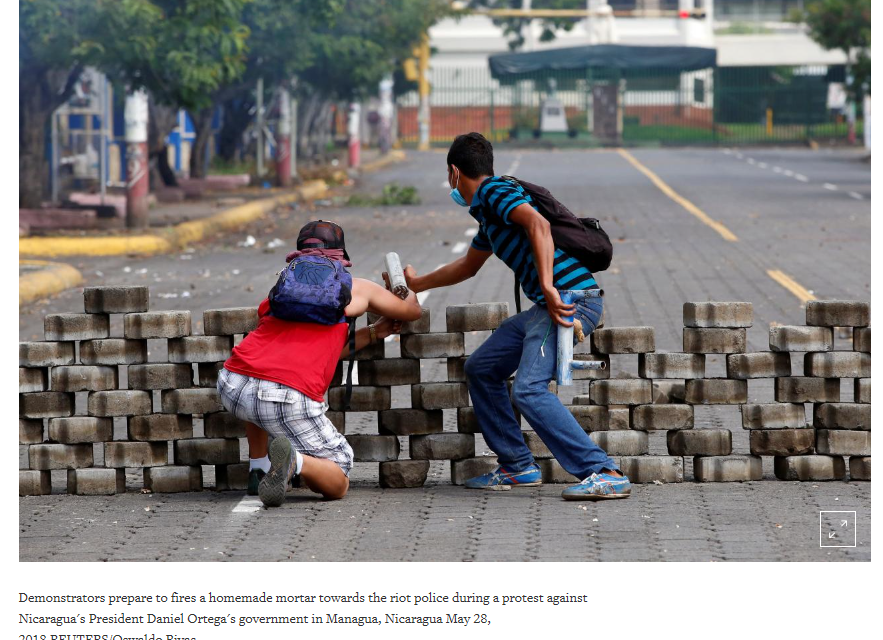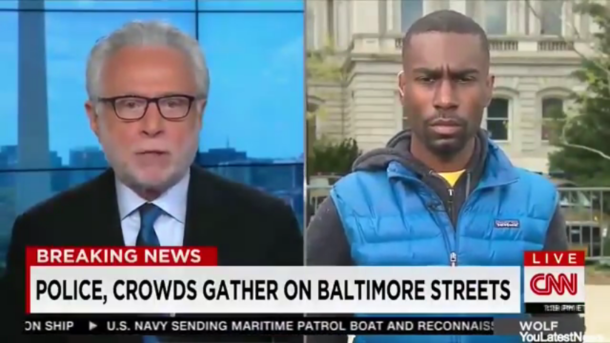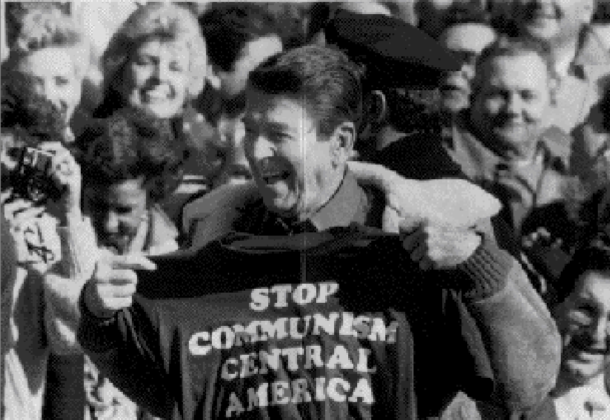Distorting Past and Present: Reuters on Nicaragua’s Armed Uprising
LATIN AMERICA AND THE CARIBBEAN, MEDIA, 27 Aug 2018
Joe Emersberger | FAIR-Fairness & Accuracy In Reporting – TRANSCEND Media Service
23 Aug 2018 – From April 18 until late July 2018, an armed insurrection in Nicaragua left hundreds of people dead. The uprising, backed enthusiastically by private media outlets in Nicaragua (in particular one of its largest circulating newspapers, La Prensa, and the TV network 100%Noticias), was also supported by local NGOs funded by the US government through the National Endowment for Democracy (NED). The Trump administration and others (the EU parliament, UN officials) publicly backed the opposition’s version of events, as did Amnesty international and Human Rights Watch. Nicaraguan President Daniel Ortega and his supporters were held responsible for the vast majority of the “protest”-related deaths, and Ortega (who had been re-elected in 2016) was pressured at first to resign outright, and later to hold “early elections.”
I examined 45 Reuters news articles about the uprising in Nicaragua since April 18, as the London-based wire service, whose news articles are widely reprinted throughout English-language Western media, provides a good sense of the ostensible facts about the conflict as portrayed by corporate journalism. The story conveyed by Reuters is that the Sandinista government is opposed to democracy and human rights in Nicaragua, while the US government supports these things. Various other sources, which may provoke less distrust than a US government led by Donald Trump, were cited in support of this scenario. But a closer look at the picture presented by Reuters reveals numerous distortions about Nicaragua’s past and present.
Whitewashing the gruesome US track record
Daniel Ortega first came to power in 1979 when the rebel force he was a part of, the FSLN, or “Sandinistas” as they came to be known, ousted the US-backed dictator Anastasio Somoza. The Somoza family’s dictatorship was established in 1937 as a direct result of a US occupation that lasted, almost continuously, from 1912 until 1933. By the end of the occupation, Somoza’s father was head of the US-trained National Guard.
Reuters mentioned the US occupation one time (5/28/18) in the 45 articles, but very misleadingly suggested it lasted only six years. Somoza was mentioned in 11 of the articles. Only one of those (5/28/18) mentioned that Somoza was a “US-backed” dictator. By contrast, Ortega was disparaged as being like Somoza in four articles. For example, one article (7/19/18) said that the protests had led to 300 deaths, and then quoted a government opponent saying, “He seems more and more like Somoza with the violations of human rights and killings.” Reuters provided no response to this comparison from Ortega’s supporters, but some of the following points would very likely have been made had Reuters looked for one.
Somoza’s National Guard is estimated to have killed between 40,000–50,000 people in his last 18 months in power (John A. Booth, The End and the Beginning, p. 181; Thomas W. Walker, Nicaragua, p. 6). One three-week bombing campaign alone by Somoza’s military in September of 1978 killed at least 3,000 people.
The level of US support for Somoza is best illustrated by the Carter administration’s maneuvers to thwart meaningful change as Somoza fell (Walker, Nicaragua, p. 37). A month before Somoza fled to Miami, the US ambassador to Nicaragua, Lawrence Pezzullo, told Washington that with “careful orchestration, we have a better than even chance of preserving enough of the [National Guard] to preserve order and hold the FSLN in check.” Only 11 days before Somoza fled, Pezzullo heinously advised Washington, “I believe it ill-advised to go to Somoza and ask for a bombing halt.” Carter also made no objection to a $66 million IMF loan to Somoza two months before he fled.
The Reuters articles never mentioned the horrendous death toll from Somoza’s last stand, or US efforts to keep his repressive apparatus intact when Somoza himself could not be rescued.
Ronald Reagan, dispensing with Carter’s attempt to use finesse, had the US train, arm and finance the Somocista “Contra” rebels throughout the 1980s. Reagan’s Contra war in Nicaragua cost 30,000 lives. Reuters mentioned Reagan’s backing for the Contras in eight of the 45 articles. Two (6/24/18, 6/3/18) noted the 30,000 people who died as a result of the war against the Contras. None mentioned that the Contras were basically run by Somoza’s ex-National Guardsmen.
Four articles stated that Nicaragua was “one of the poorest countries in the Americas” (4/20/18), or words to that effect—which is unsurprising, given that 78 years of Nicaragua’s history consisted of direct US military occupation, a brutal US-backed dictatorship, and the Reaganite terrorist war. It wasn’t until about 2008 that Nicaragua’s real GDP per capita recovered to the level it had reached when Somoza was overthrown.
It should be noted that Reuters is capable of putting sweeping indictments in its news articles, provided they are aimed at the Official Enemy. One article (5/28/18) stated that “Ortega has consolidated his rule by neutralizing and co-opting credible opposition and stalling the development of independent institutions.”

“‘No Surrender,’ Say Opponents to Nicaraguan President After Clampdown,” was the headline of Reuters‘ story (7/18/18) accompanying this photo of Nicaraguan police.
Casting doubt on Ortega’s democratic legitimacy
One Reuters article (7/18/18) stated that “Ortega is a former Marxist guerrilla leader who has held elected office since 2007 and also ruled the country from 1979 to 1990.” The contrast between “elected office” and “ruled” erases Ortega’s electoral victory in 1984 from history; it was never mentioned in any of the articles. One of the ways Reagan justified his aggression against Nicaragua during the 1980s was to claim that Ortega was a dictator, ignoring the 1984 election, which Ortega won with 67 percent of the vote, or claiming it was fraudulent. FAIR (Extra!, 10/87) noted in 1987, “Eighty percent of the [New York] Times sources about Nicaragua’s election were US officials and Nicaragua’s boycotting opposition.”
Another Reuters article (6/24/18) contains this jaw-dropping passage:
Some in Nicaragua are looking to the lessons of the 1990 election when Ortega was defeated by an alliance led by Violeta Barrios de Chamorro, the widow of a murdered opposition journalist. Her pitch was to end the civil war that claimed more than 30,000 lives.
The “opposition journalist” Reuters mentioned, Pedro Joaquín Chamorro Cardenal, was murdered in 1978 as a fierce opponent of the Somoza dictatorship, but Reuters’ wording deceptively suggests he was killed by the Sandinistas. Even more disgracefully, the “lesson” from 1990 was that if you are US-backed candidate promising to end US military and economic attacks on your country, you can use that to win an election. Chamorro’s “pitch,” based on the exploitation of violent foreign intervention, should completely discredit her victory in the eyes of reasonable observers.
Much of the US establishment has questioned the legitimacy of the 2016 US election based on reports of email hacking by Russia. If email hacking invalidates an election, then what about terrorist attacks and economic blackmail in support of the winning candidate?
Another Reuters article (5/16/18) said that
Ortega, 72, first took power in 1979 after the Sandinista rebels overthrew the Somoza dictatorship. His government then fought a war against US-backed “Contras” before he was voted out in 1990.
Again, Ortega’s 1984 electoral victory is edited out of history, and he is presented as finally bowing to the will of voters in 1990. In the eyes of Western journalists, elections don’t exist when Washington doesn’t like the results, but US aggression does not mar an election result that the US government applauds.
In contrast to its knee-jerk acceptance of Chamorro’s electoral victory in 1990, Reuters relayed opposition allegations of electoral fraud against Ortega in eight articles. One of them (5/28/18) stated that Ortega was “re-elected in 2016 with nearly three-quarter of the votes after limiting opposition participation.” But an OAS report on the 2016 election defended the election’s legitimacy; the OAS’s observer mission, according to the OAS press office, identified
“important advances” and “weaknesses typical of all electoral processes” that have “not affected substantially the popular will expressed through the vote.”
The OAS has never been inclined to give governments targeted by Washington a pass; quite the contrary, which is why several years ago leftist governments in the region worked to create alternative organizations, like CELAC and UNASUR.
A year after Ortega’s last re-election, Latinobarometro, a pollster that tends to be biased against governments Washington dislikes, found Ortega’s government to be the most popular in Latin America, according to a broad range of questions.
Jake Johnston of the Center for Economic and Policy Research (4/27/18) offered an explanation for why Ortega might be far more popular among Nicaraguan voters than he is with Western journalists:
Since 2006, Nicaragua’s per capita GDP has increased by 38 percent — more than in Costa Rica, Guatemala, El Salvador or Honduras. Inequality, too, is lower in Nicaragua than any of those other countries, save El Salvador. Poverty has been cut nearly in half, according to World Bank data, from 48 percent to 25 percent.
None of the Reuters articles mentioned the poverty reduction that took place during Ortega’s recent years in office.
Concealing opposition support for social security cuts
Protests erupted in response to the government announcing changes to the social security system. Reuters (4/19/18) described the changes as follows:
Employees will now have to contribute 7 percent of their salary to social security, up from a current 6.25 percent. Employers will have to contribute 22.5 percent of salaries from a current 19 percent. Pensioners will also have 5 percent of their pension taken out to be used for medical expenses.
An article by the Tortilla con Sal collective in Telesur (4/21/18) clarified that the 5 percent benefit cut would be taken from “retirees’ pensions so they receive the same healthcare benefits as active workers (which they currently do not).” Moreover, the changes removed “the salary ceiling so that people earning high salaries pay social security contributions proportionate to their income.”
The majority of Reuters’ articles (27 out of 45) noted that proposed “social security” (or “welfare”) changes sparked “the protests.” Many of those articles referred to the changes as “cuts.” The word “slash” was also used.
But tellingly, not a single article reported that COSEP, the business lobby that joined the coalition to overthrow Ortega, itself supports very deep and unpopular cuts to social security. On April 19, right after protests began, a COSEP press release called on Ortega to “be responsible,” even if it meant “paying the political price,” and endorsed a plan for a 20 percent cut in social security. The opposition newspaper La Prensa (4/18/18) also made clear that it supported much deeper cuts to social security than the Sandinistas, dismissing Ortega’s proposal as “just a patch” in an April editorial that called for “profound structural changes.” The specific plan COSEP endorsed was based on recommendations by the IMF and FUNIDES, a Nicaraguan NGO funded by the US government through the NED. NED funding for the Nicaraguan opposition was never brought up by Reuters.
One Reuters article (5/28/18) spun the opposition’s lack of coherence beyond an “Ortega must go” line by calling it a “broad new coalition” that is “looking to the lessons of the 1990 election.” Another (6/24/18) described the “uneasy union” and “division,” but somehow never reported the basic fact that key groups within the opposition want much deeper cuts to social security than what Ortega proposed. Of course, if you are looking to seize power by applying the “lessons of 1990,” why worry about such details?

Reuters would be unlikely to characterize protesters as “mainly peaceful” if they were shooting mortars at the police force of a pro-Western government.
Hiding violence of ‘mainly peaceful’ opposition
The Reuters articles generally stuck to uncritically reporting what local rights groups claimed about the victims of violence. These claims were backed up by prominent international outfits like Amnesty International. Amnesty’s Erika Guevara-Rosas was quoted by Reuters (7/18/18) as saying “President Ortega has shown time and again that he will stop at nothing to crush all those who dare to oppose his government and anyone unfortunate enough to get in the way.”
A few times Reuters dispensed with quoting sources, stating directly that Ortega was guilty of a “thuggish response to weeks of protests” (5/28/18) or “violent repression of dissent” (7/24/18, 7/23/18). Even the Trump administration was uncritically quoted by Reuters (7/17/18) as joining the “outcry” over human rights. The same article quoted UN human rights spokesperson Rupert Colville as saying “the protesters were mainly peaceful, though some were armed.”
They “protesters” weren’t simply “armed,” though. They killed people.
Independent journalist Max Blumenthal (Mint Press News, 8/6/18) went to Nicaragua and spoke to numerous family members of people killed by the “mainly peaceful” opposition, who did a lot more than simply “oppose the government.” One high-profile victim miraculously escaped death, a student leader named Leonel Morales, who initially led protests against Ortega’s social security proposals. Soon after protests began, Morales held a nationally televised press conference saying that armed groups had infiltrated the protest movement at a major university. La Prensa (4/26/18) ran a hostile news article about Morales’ press conference, saying he “tried to delegitimize the protest movement.”
Days after that press conference, Blumenthal (Shadowproof, 8/5/18) recounted, Morales was “kidnapped from his girlfriend’s house by a truck full of armed men. He was shot in the face, shot in the stomach, stabbed, and thrown in a ditch to die.” La Prensa never reported the near-fatal assault on Morales, nor did Reuters. Blumenthal, who visited Morales in the hospital, was shocked that many high-profile and readily accessible victims of opposition violence were ignored by foreign journalists.
I visited Leonel Morales today. He is in the hospital in Managua going through a string of surgeries. An armed opposition affiliated gang kidnapped him at his gf’s house, tortured him, slashed and shot him, and left him for dead in a drainage ditch. He miraculously survived. pic.twitter.com/Ols3Vg2FtV
— Max Blumenthal (@MaxBlumenthal) July 22, 2018
Blumenthal (Gray Zone, 7/30/18) also wrote about the case of Gabriel de Jesus Vado, “a police officer from Jinotepe, who was kidnapped, dragged from a moving car, and burned alive on video.” The atrocity took place at one of hundreds of roadblocks set up by protesters.
An Ortega government supporter compiled a detailed spreadsheet of the deaths reported by local human rights groups. It includes police reports and news articles from both pro-opposition and pro-government sources about each death, when available. After two months of protests (when Reuters reported that local human groups were claiming 300 victims), his tally broke the 293 deaths down as follows:
- 20% (60) deaths implicate the opposition
- 20% (59) protester deaths implicate the government
- 16% (46) bystanders
- 17% (51) deaths not related to protests (crime, accidents)
- 26% (77) deaths for which information available is too limited
(An updated spreadsheet covering three months of the uprising—405 deaths—is here.)
Obviously, a breakdown like this compiled by a partisan source can be challenged. Depending on the standards for evidence applied, the classification of deaths can change significantly. I checked through each death in his first category (deaths that implicate the opposition), gave zero weight to police reports (the opposite of what Western journalists do at home), and gave most weight to sources, regardless of political bias, that quoted family members. I concluded that the opposition was implicated in 52 deaths, most of them very strongly. Applying that same standard, the government (police or armed supporters) is implicated in 28 of the 46 bystander deaths, with the other 18 being unclear. (Based on 2017 figures for homicides, Nicaragua under normal circumstances would have had about 80 homicides in a two-month period, so the claim that 51 of the deaths were from crime unrelated to the protests is plausible.)

Wolf Blitzer (CNN, 4/28/15) repeatedly pushed DeRay McKesson to condemn “violence” in protests against seven killings by the Baltimore police in the previous year.
Consider the very different standard for “peaceful” applied in the US to protests against impunity for police killings. In 2015, CNN’s Wolf Blitzer (4/28/15) badgered Black Lives Matter supporter DeRay Mckesson after protests in Ferguson resulted in property damage and some police officers hurt. At one point Blitzer commanded, “I just want to hear you say there should be peaceful protests, not violent protests,” after Mckesson had already said exactly that a few times.
Samantha Bee (Full Frontal, 11/14/16) set the bar even higher suggesting that truly “peaceful protesters” would shake hands with police (FAIR.org, 11/16/16). Barack Obama urged Colin Kaepernick to “think of the pain” he may cause by kneeling during the national anthem to protest killings by police. A movement in the US, or resisting a US-backed government, would not be labeled “mainly peaceful” if it killed any police or civilians at all.
Even the relatively minor crimes perpetrated by the opposition in Nicaragua—like using piles of concrete blocks to set up roadblocks all over the country that were kept in place for months—would never be tolerated in the United States, or be described as “peaceful” acts of “dissent.” The unarmed protesters of Occupy Wall Street in the US had their camps evicted by police on the grounds that they were too dirty: a “public health hazard.” An Occupy march that stalled traffic on the Brooklyn Bridge for a few hours led to 700 arrests.
That isn’t to say that Nicaraguan police and armed supporters didn’t perpetrate serious crimes in putting down the uprising. However, a violent insurrection like this in the US would never be legitimized by Reuters—not that such a revolt would ever be allowed to get a millimeter off the ground, or that foreign governments would dare support it. In the extremely unlikely event such a revolt developed, it would certainly be put down very brutally.
Some leftists in rich Western countries say that they live under “dictatorship.” It‘s a silly and defeatist claim, but it will not put their own countries at risk of invasion, foreign-backed violent insurrection or devastating economic assault. It’s quite different when a government in the Global South gets the “dictatorship” label pinned on it, thanks to very biased reporting about a foreign-backed insurrection.
____________________________________________
 Joe Emerberger is a writer based in Canada whose work has appeared in Telesur English, ZNet and Counterpunch.
Joe Emerberger is a writer based in Canada whose work has appeared in Telesur English, ZNet and Counterpunch.
DISCLAIMER: The statements, views and opinions expressed in pieces republished here are solely those of the authors and do not necessarily represent those of TMS. In accordance with title 17 U.S.C. section 107, this material is distributed without profit to those who have expressed a prior interest in receiving the included information for research and educational purposes. TMS has no affiliation whatsoever with the originator of this article nor is TMS endorsed or sponsored by the originator. “GO TO ORIGINAL” links are provided as a convenience to our readers and allow for verification of authenticity. However, as originating pages are often updated by their originating host sites, the versions posted may not match the versions our readers view when clicking the “GO TO ORIGINAL” links. This site contains copyrighted material the use of which has not always been specifically authorized by the copyright owner. We are making such material available in our efforts to advance understanding of environmental, political, human rights, economic, democracy, scientific, and social justice issues, etc. We believe this constitutes a ‘fair use’ of any such copyrighted material as provided for in section 107 of the US Copyright Law. In accordance with Title 17 U.S.C. Section 107, the material on this site is distributed without profit to those who have expressed a prior interest in receiving the included information for research and educational purposes. For more information go to: http://www.law.cornell.edu/uscode/17/107.shtml. If you wish to use copyrighted material from this site for purposes of your own that go beyond ‘fair use’, you must obtain permission from the copyright owner.
Read more
Click here to go to the current weekly digest or pick another article:
LATIN AMERICA AND THE CARIBBEAN:
- China Must Provide More Substantial Aid to Cuba
- Trump's Utterly Cruel and Inhuman Immigration Policy Targetting Haitians
- Venezuela: Pro-Government Alliance Wins Big in Legislative and Regional Elections
MEDIA:
